A new match begins
Replay full analysis of the game by world number six Anish Giri at the end of the article!
 After not winning a single classical game in a World Championship match since 2016, Magnus Carlsen has won twice in three days at the battle for the crown in Dubai. With six games to go, it would be truly surprising if Ian Nepomniachtchi manages to bounce back, especially after having suffered such painful defeats.
After not winning a single classical game in a World Championship match since 2016, Magnus Carlsen has won twice in three days at the battle for the crown in Dubai. With six games to go, it would be truly surprising if Ian Nepomniachtchi manages to bounce back, especially after having suffered such painful defeats.
While Friday’s game will go down in World Championship history as a memorable struggle, Carlsen’s latest win had more to do with what appear to be psychological difficulties suffered by his opponent. In the end, it was a dream three-day series for the defending champion, who not only won both his games with white but also got a clean, quick draw in his one game with the black pieces.
After such an optimal result in the games following the second rest day, one would think Carlsen would be ecstatic in the post-game press conference. However, he looked markedly tired, a perception which was confirmed by the Norwegian himself while answering to journalists’ questions. This was not the kind of win a player of Carlsen’s calibre celebrates excessively.
 Let our authors show you how Carlsen tailored his openings to be able to outplay his opponents strategically in the middlegame or to obtain an enduring advantage into the endgame.
Let our authors show you how Carlsen tailored his openings to be able to outplay his opponents strategically in the middlegame or to obtain an enduring advantage into the endgame.Anish Giri — whose annotations you can find at the end of the article — noted that for him and his colleagues it seldom feels good to beat Nepomniachtchi. Much like in Saturday’s encounter, the Russian tends to lose games after overestimating his chances and losing control of the position. Giri described the phenomenon concisely:
Nobody ever beats him.
It is certainly difficult to imagine Nepo managing to recover from a two-point deficit given how strongly Carlsen has been playing in Dubai — and how well-prepared he looks in his fifth outing at a World Championship match. Nonetheless, the fighting Russian is likely to revert back to the kinds of sharp openings and defences that gave him so many victories during his career — i.e. the Grünfeld.
The fact that the challenger is all but forced to employ a new, aggressive approach might end up being just what he needed to put up more of a fight. Or maybe this weekend will simply decide the whole match in Carlsen’s favour...
Out of a Petroff Defence, Carlsen played an innocent-looking system with 7.Nd2. As Nepo himself noted later on, though, White can create some trouble in this setup. The first critical position was reached as early as on move 10.
Breaking the perfect symmetry of the game, Nepo had played 9...h5 after thinking for over 16 minutes. Surprisingly, Carlsen was out of book here — and what was even more unexpected was to see him spend 40 minutes before going for 10.Qe1.
The most logical alternative was 10.c4, which might end up working for White, albeit not without complications. As mentioned above, the defending champion was tired after Friday’s marathon, which turned out to be the crucial factor in him going for what might be considered as an implicit draw offer.
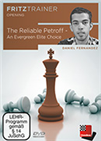 The Petroff (or Russian) Defence which is characterised by the moves 1.e4 e5 2.Nf3 Nf6 has been popular at the highest levels for many years and enjoys the reputation of being an extremely solid defence.
The Petroff (or Russian) Defence which is characterised by the moves 1.e4 e5 2.Nf3 Nf6 has been popular at the highest levels for many years and enjoys the reputation of being an extremely solid defence.And, indeed, a draw would have most likely followed Black responding with 10...Qe7. However, Nepo opted for 10...Kf8, which is by no means a mistake. After the game, a disheartened — yet serene — Nepo mentioned:
In other iteration, it would be a draw in like fifteen moves, after 10...Qe7
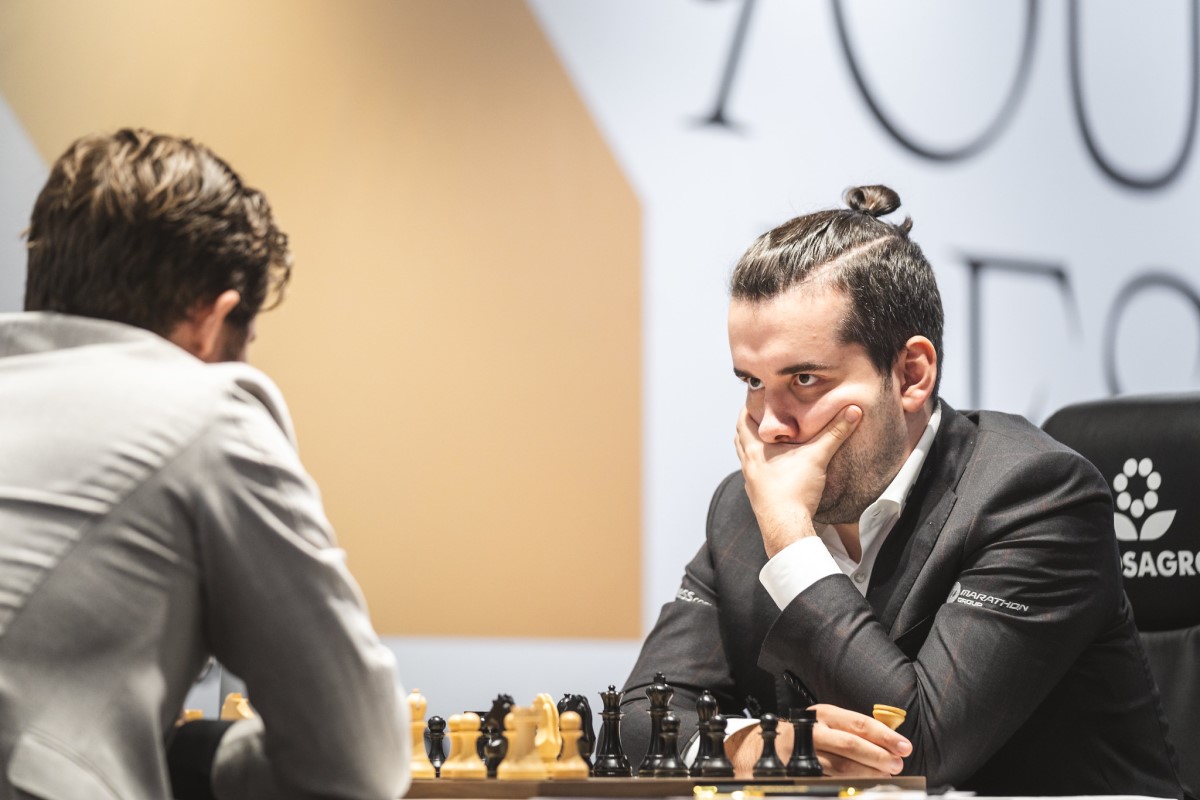
The stare — Ian Nepomniachtchi | Photo: Niki Riga
Following Nepo’s tenth move, the fight continued with a symmetrical pawn structure but with Black unable to castle. A critical psychological moment was seen on move 14.
Giri described Nepo’s 14...Rh6 as ‘questionable’, but more importantly he refers to the fact that the Russian played this move way too quickly:
This questionable move was played too fast, and I started to get worried for Black here. It started to become clear that Ian was out of balance on this day.
The weight of the situation seemed to be getting into Nepo’s head, who at times makes impulsive decisions even in very important games. And Giri’s instinct was right, as the Russian made the first big blunder of the match seven moves later.
21...b5 is not the kind of mistake you see in a World Championship match. The pawn push allows 22.Qa3+ Kg8 23.Qxa7, when White grabs a pawn and attacks the bishop on d7 at the same time.
Carlsen had a clear advantage, and Nepo needed to deal with the fact that he had just made an awful mistake. The Russian could have put up more of a fight, but as Giri reflected right out of the opening, the challenger was simply out of balance. The game continued until move 46, but there was little doubt that the defending champion would manage to score his second win of the match.
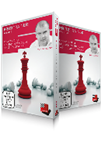 These DVDs are about Understanding Middlegame Strategies. In the first DVD dynamic decisions involving pawns are discussed. The second DVD deals with decision making process concerning practical play.
These DVDs are about Understanding Middlegame Strategies. In the first DVD dynamic decisions involving pawns are discussed. The second DVD deals with decision making process concerning practical play.It is time to regroup for Nepo and his team, who will get a chance to create a whole new plan going forward during Monday’s rest day. Time for a King’s Gambit?
Expert analysis by GM Anish Giri
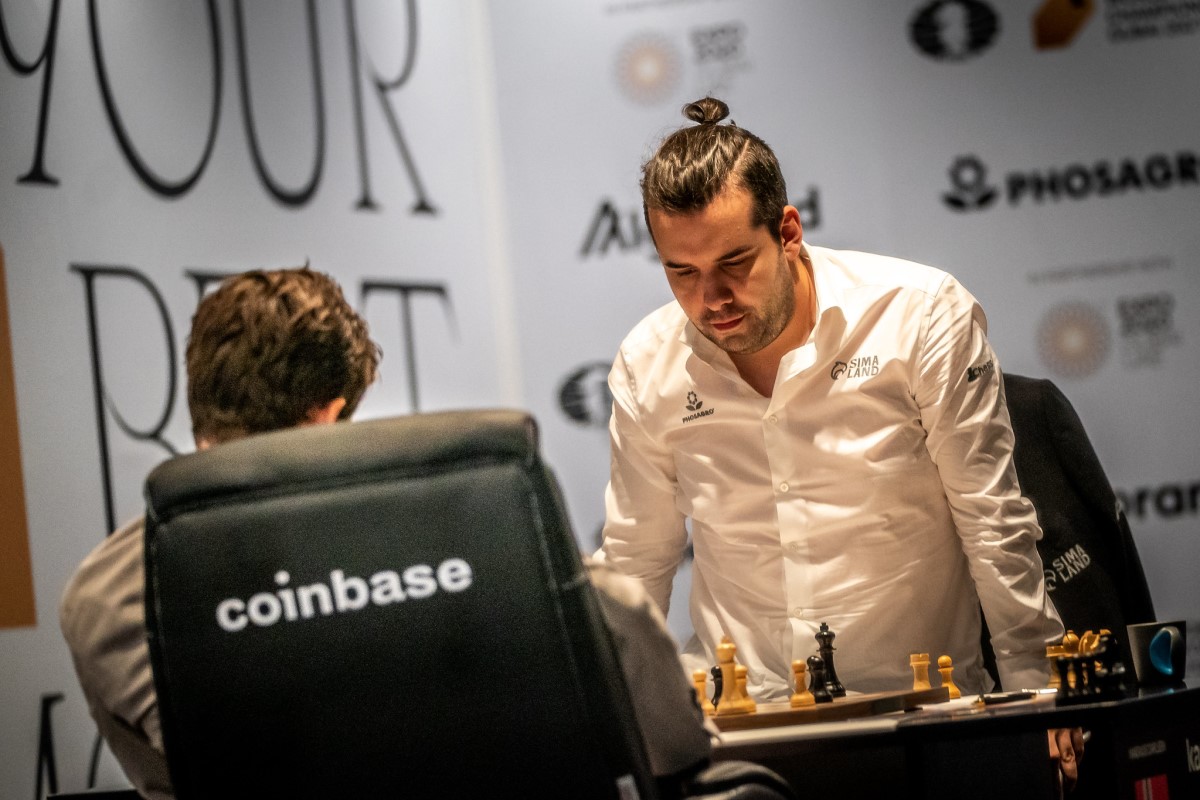
It’s time to examine new ideas | Photo: Eric Rosen
All games
Links
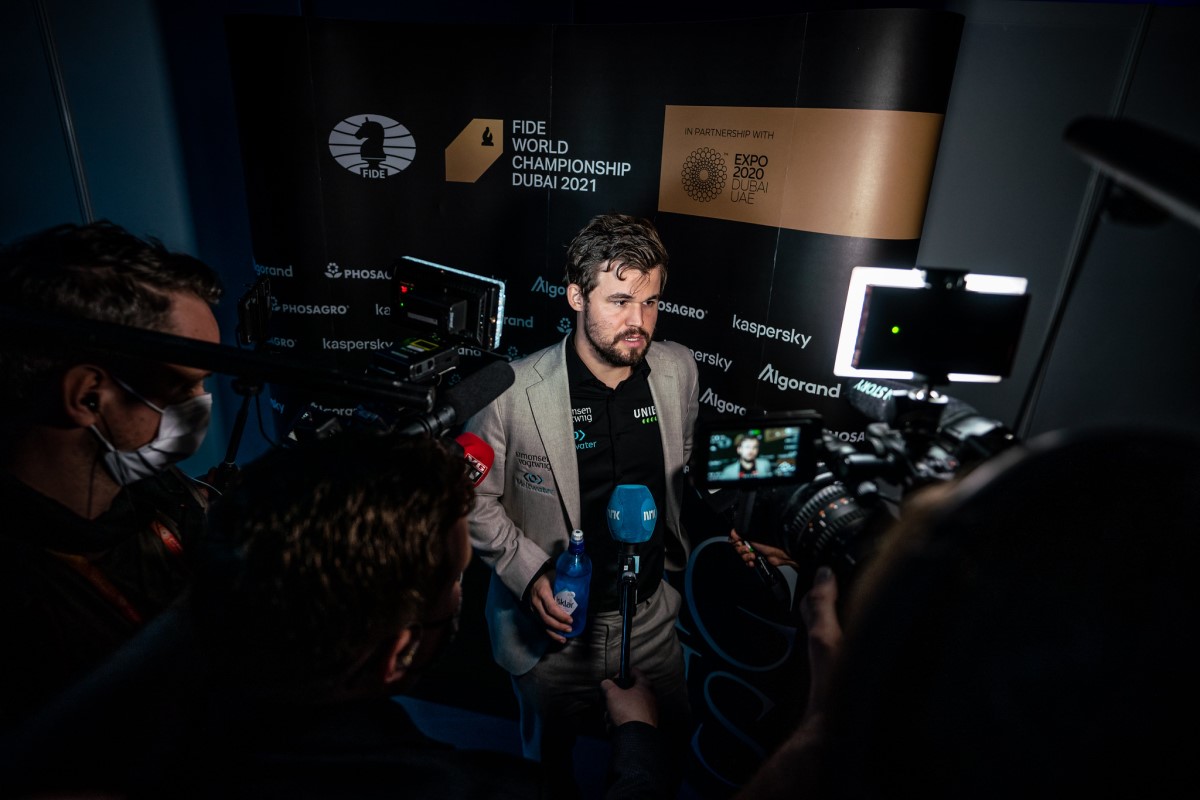

















 After not winning a single classical game in a World Championship match since 2016, Magnus Carlsen has won twice in three days at the battle for the crown in Dubai. With six games to go, it would be truly surprising if Ian Nepomniachtchi manages to bounce back, especially after having suffered such painful defeats.
After not winning a single classical game in a World Championship match since 2016, Magnus Carlsen has won twice in three days at the battle for the crown in Dubai. With six games to go, it would be truly surprising if Ian Nepomniachtchi manages to bounce back, especially after having suffered such painful defeats.






